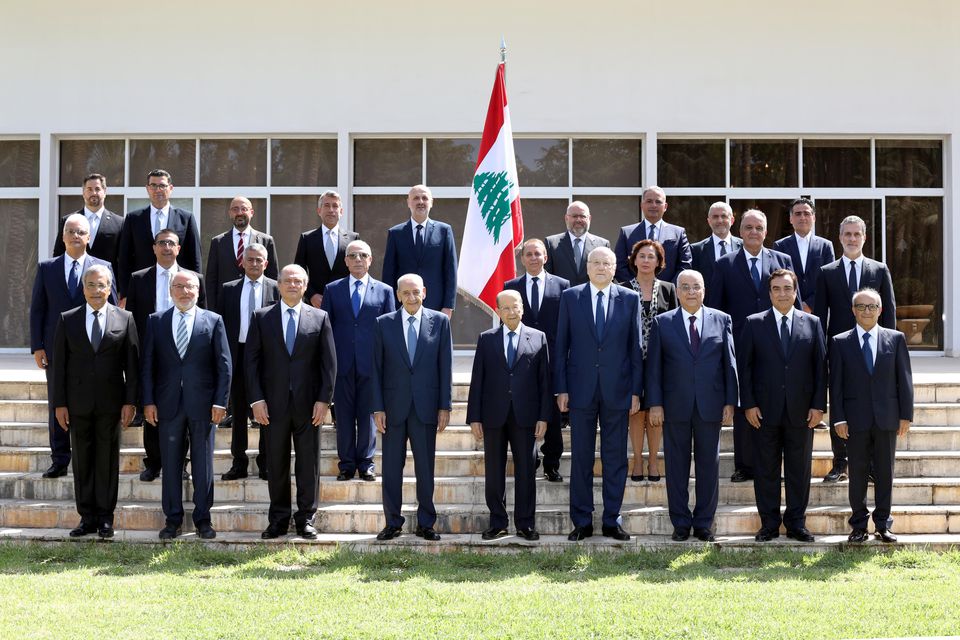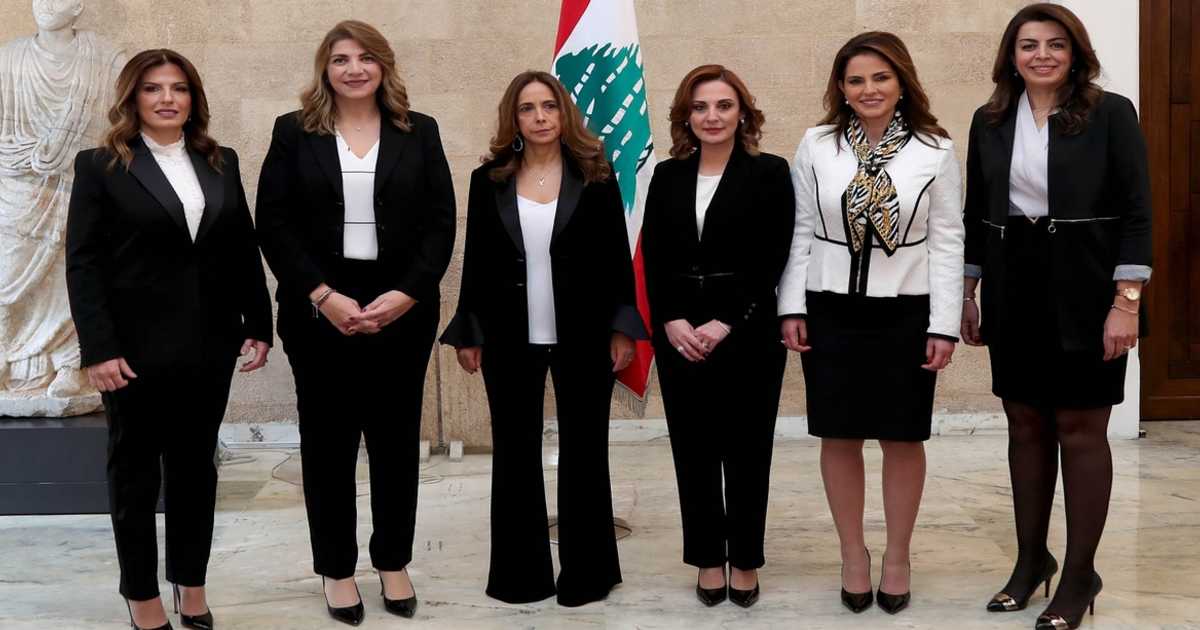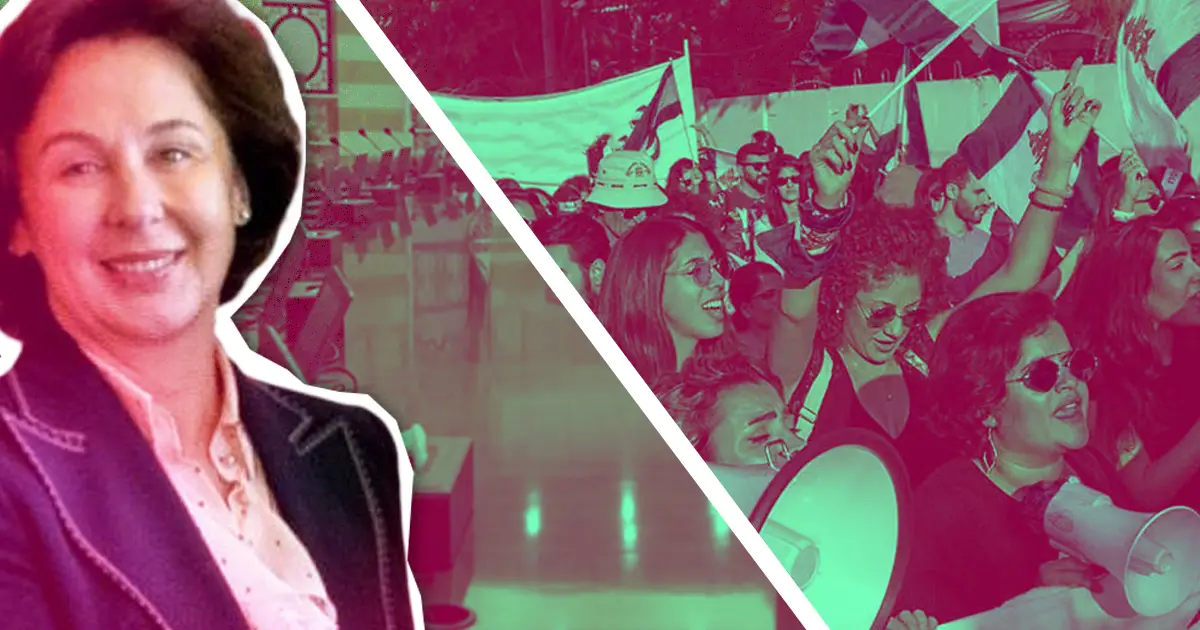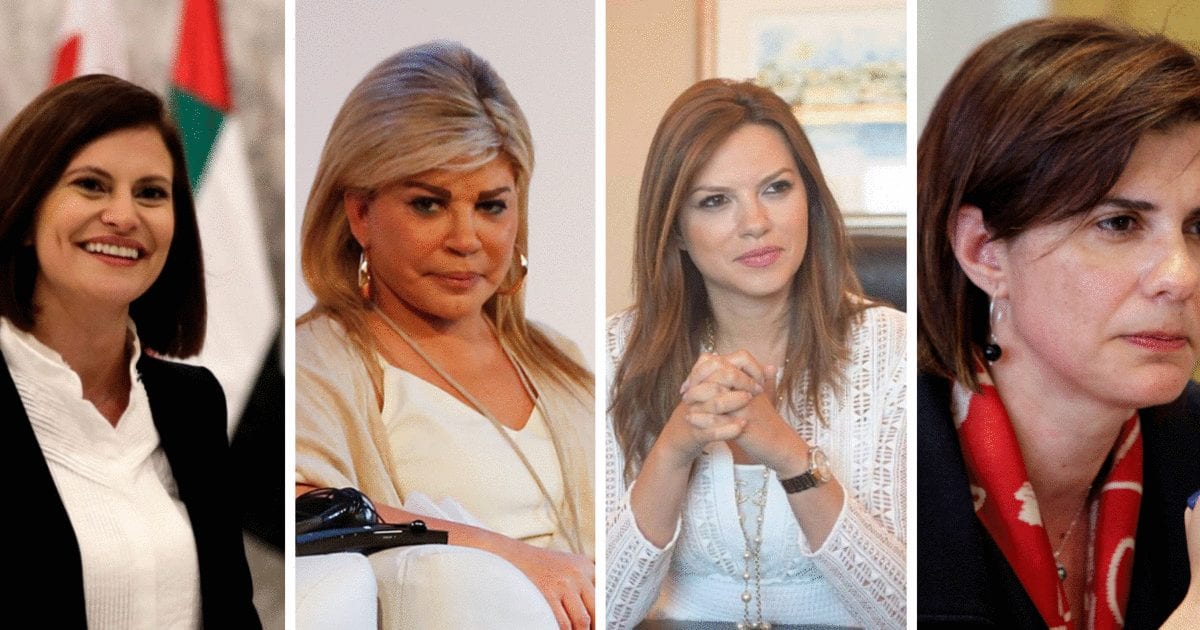After almost a year of dragging and bickering over the formation of an urgently needed cabinet, the Lebanese nation was finally told on September 10th that those in charge have managed to form a government on which all involved parties agreed.
All the involved political parties but not all the nation.
The announcement did come as a surprise on Friday as people have long lost hope that the ruling officials will come to put the country’s interest at the top of their priorities; above and beyond their own and that of their political parties.
But it also came surprisingly (or maybe not) gender inequitable, in addition to the unfit allocations of positions.
In that regard, it suffices to go through the specializations of the chosen ministers and the ministries handed to them.

The Lebanese state can now reassure the international community that its government is formed of specialized officials and get the promised funds and financial support.
But it hasn’t reassured its people, not when they have just seen that many of these “technocrats” were allocated ministries in fields that are not their specializations.
Strangely, but not really shocking to the Lebanese people.
After all, those who have been long in charge of the country and its mayhem have gotten what they wanted: bringing their own people in, based on sectarianism, and distributing them around the ministerial seats that needed to be occupied.
Who got what is irrelevant to them as long as they have ensured a 50/50 division based on the 2 main religions in Lebanon.
Does it mean it’s all-inclusive? No, not by a long shot.
Lebanon is not only a country of religions and sects, let alone just 2 religions and/or 18 sects. The rulers persist in deeming it that way, not the people though, not anymore.
Not when a sectarian division of a cabinet formation brings officials to head ministries outside of their expertise (if any), and not when women are deemed of no equal capability to partake in the government.
Again, Lebanese women have been marginalized in the selection of adequate ministers.
That wasn’t the case with the last cabinet where 6 highly qualified women were nominated by Hassan Diab and approved by the president and the parliament.
Lebanon actually broke the regional record back then with women government officials.

In the previous cabinet of Saad Hariri, they were 4 women ministers in the Lebanese government.
This time, Lebanon has only one woman in the cabinet of 24.
A message well received by the world that Lebanon doesn’t deem its women as qualified or even fit to lead or manage ministries.
However, on the ground of Lebanon’s daily reality, this isn’t the case.
“There is no shortage of female leaders and experts across the range of fields in Lebanon,” UN Women issued in a statement right after the cabinet was announced on Sept 10th along with its list of new ministers.
There isn’t either shortage of highly-educated women in the country with proven achievements in managing complex situations and overcoming difficult challenges.
UN Women made it a point to emphasize it, based on events of these past 2 years where Lebanese women were actively managing and dealing with critical situations.
“With women playing leading roles in relief efforts in response to the COVID-19 pandemic, the Beirut port explosion, and the economic crisis, they deserve to be represented in the decisions made on the country’s future,” the organization said.
In brief, they have long earned their rights to partake in the policymaking recovery of the country, which fate equally concerns them and affects them and the youngest generation they raise.
Lebanon is home to men and women, at almost an equal ratio.
Both genders get educated in the same universities, acquire a similar level of degrees, are part of the same working force, and partake in fueling the wheel of the economy.
So what is there that makes them deemed less capable? Their gender…
And yet, they are the ones who, in many instances, have stopped sectarian conflicts incited by those in charge, impeding as such another devastating war in the country.
In the aftermath of the Beirut Blast, they were in the streets, fixing and mending, and even rebuilding, voluntarily undertaking tasks the government failed to assume.
They are the ones running most NGOs in the country, helping those in need in the absence of a functional welfare system. They are the ones ensuring that life keeps beating in the heart of the country.
They are professors educating the future generation of policymakers and lawmakers. They are doctors in hospitals, managers in companies, heads of associations, engineers, architects, and you name it.
Plainly said, their involvement in the government and the decision-making affecting the country is crucial, and yet their access to it has been, once again, restricted.
True, there is a partial sense of relief that a government has been finally formed after almost a year. But it has been formed regressively while, as noted by UN Women, women’s “engagement is fundamental for the advancement and recovery of the country.”
Like at least half of the Lebanese nation, UN Women sees this government formation as “a great concern.” An alarming decrease of women’s representation from 30% to 4%.
“This mirrors the strikingly low level of women’s representation across political and public offices in the country, with women currently occupying less than five percent of parliamentary seats and making up less than six percent municipal councilors,” UN Women noted.
Lebanon’s reality today is harder than words can express:
It has been going backward at almost all levels; in living conditions, in currency value, in shortages of basic amenities, in health services due to rulers’ neglect and misgovernance, in neverending crises, in transportation facilities, in income, in gender equality, and on, and on.
That formation of the new government is disappointing, to say the least. The Lebanese can only hold onto a shred of hope that it can come to, at least, fix some of the most critical issues that have rendered life in Lebanon harsher than ever.

